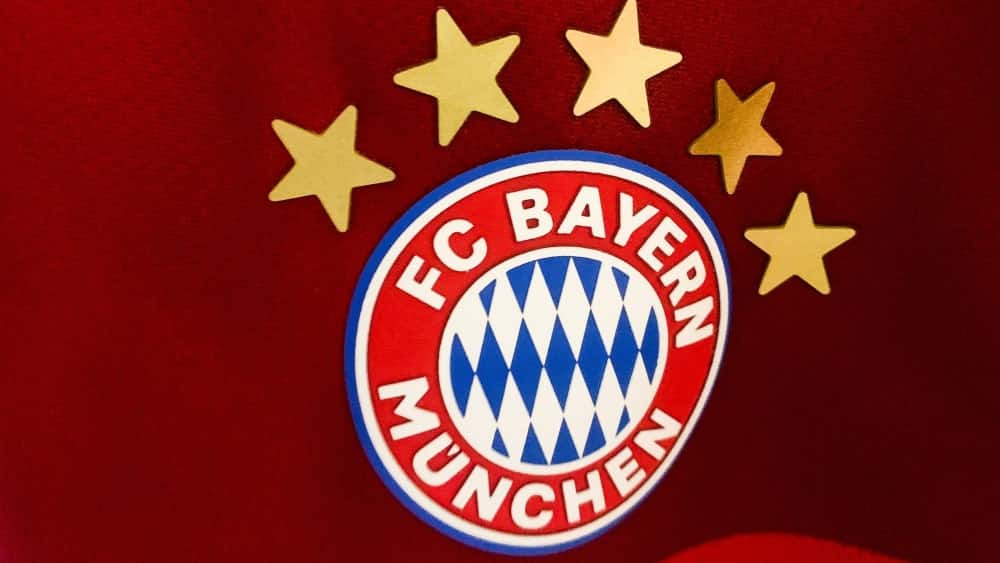The auditing company KPMG has compared the key figures of the champions of the eight most important European leagues with its football benchmark tool. FC Bayern is the only club to have made a profit. Inter and Atletico, on the other hand, record horror losses.
You wonder about a lot of things in football, in general and especially in international business. Maybe you don’t have to wonder much once you’ve analysed the figures, as the global auditing firm KPMG has done once again. This time in its “The European Champions Report”, in which it compares the key figures of the champions of the eight most important European leagues, i.e. England, Germany, Spain, Italy, France, the Netherlands, Portugal and Turkey.
Happy news, for example, for the best 2020/21 in calcio, Inter Milan. AC Milan’s city rival took in 347.5 million euros and thus achieved a strong increase in turnover of 19 per cent. But it’s a shame that, at 245.6 million euros, it also posted a gigantic net loss, which no other European champion can match – in the negative sense. Atletico Madrid, perhaps, with its minus of 111.7 million euros. And of course FC Barcelona with a loss of 481.3 million euros, but they didn’t win the championship.
Bayern’s unique selling point
Only one title holder has made a profit and that, in turn, is good news for German football, which recently has not had so much good news internationally. For it is FC Bayern, even though the plus of a slim 1.8 million euros is a fraction of the total turnover of 597.5 million euros (-2 per cent). In this category, by the way, the Munich team ranks second behind Manchester City. The Skyblues took in 644.2 million euros, an increase of 17 per cent. It is unclear whether City is making a profit; according to KPMG, no reliable figures are yet available. However, this is likely to be of secondary importance for the Emirates-owned club.
The remaining champions are in the red: Ajax, for example, took in 8.1 million euros less than it spent. The gaps at Lille OSC (23.2), Sporting Lisbon (33.0) and Besiktas (44.4) are more glaring. This perhaps serves as a pictorial explanation of why certain clubs are trying to further soften Financial Fair Play and why the Bundesliga is taking the lead in counter-pressing in this battle for solidity.
“While there are notable exceptions,” concludes Andrea Sartori, head of KPMG’s sports division, “the general trend shows that operating income under the almost complete loss of matchday revenue cannot absorb the high personnel costs and the decline in transfer income.” At least the minus would be mitigated by stable or increasing media or advertising revenues.
Atletico’s rehabilitation programme did not work in 2020/21
In fact, such gigantic losses as Atletico’s can be explained, at least in part, by the fact that the Colchoneros usually reorganise their cost apparatus through transfers and this then didn’t work quite as well in 2020/21.
Although they also recorded strong revenues in 2020/21, for example through the sales of Thomas Partey to Arsenal FC (around €50m) or Caio Henrique to AS Monaco (around €8m), according to the KPMG report: “This figure fell from a profit of €137m in the previous season, generated mainly by the sales of Antoine Griezmann, Lucas Hernández and Rodri, to €37.7m in the absence of similar transfer income in the 2020/21 season.”
The auditors consider the key to Munich’s unique economic stability by championship standards to be the fact that the record champion signed many partnerships during the pandemic and that the major commercial contracts remained unchanged despite Corona.
“Furthermore, Bayern, like the entire Bundesliga, has dived deeper into blockchain-based partnerships and joined the NFT revolution through an agreement with Sorare. “KPMG apparently sees openness to technological innovations as a major plus for the German industry leader and the Beletage of the Federal Republic in general.
Advantage personnel costs
The growth in personnel costs of 11 per cent to 348.9 million euros is of no consequence, especially as this is also likely to be due to a salary waiver for the 2019/20 season.
Remarkably, the FCB is the only one of the eight champions to keep its personnel cost/turnover ratio below 60 per cent. This is also likely to be a key to the unique selling point in terms of balance sheet profit. In concrete terms, 58 per cent of Munich’s turnover is spent on personnel.
For the rest of the title holders, the ratio is in part significantly higher (Besiktas: 62; Inter: 75; Ajax and Atletico: 76 each), at Sporting it is 97 per cent, at Lille almost an outrageous 106 per cent. Only Man City’s figures are missing because the club has not yet published its official financial statements – but it would be interesting to know what the ratio is for Pep Guardiola’s team. In general and in international comparison.





